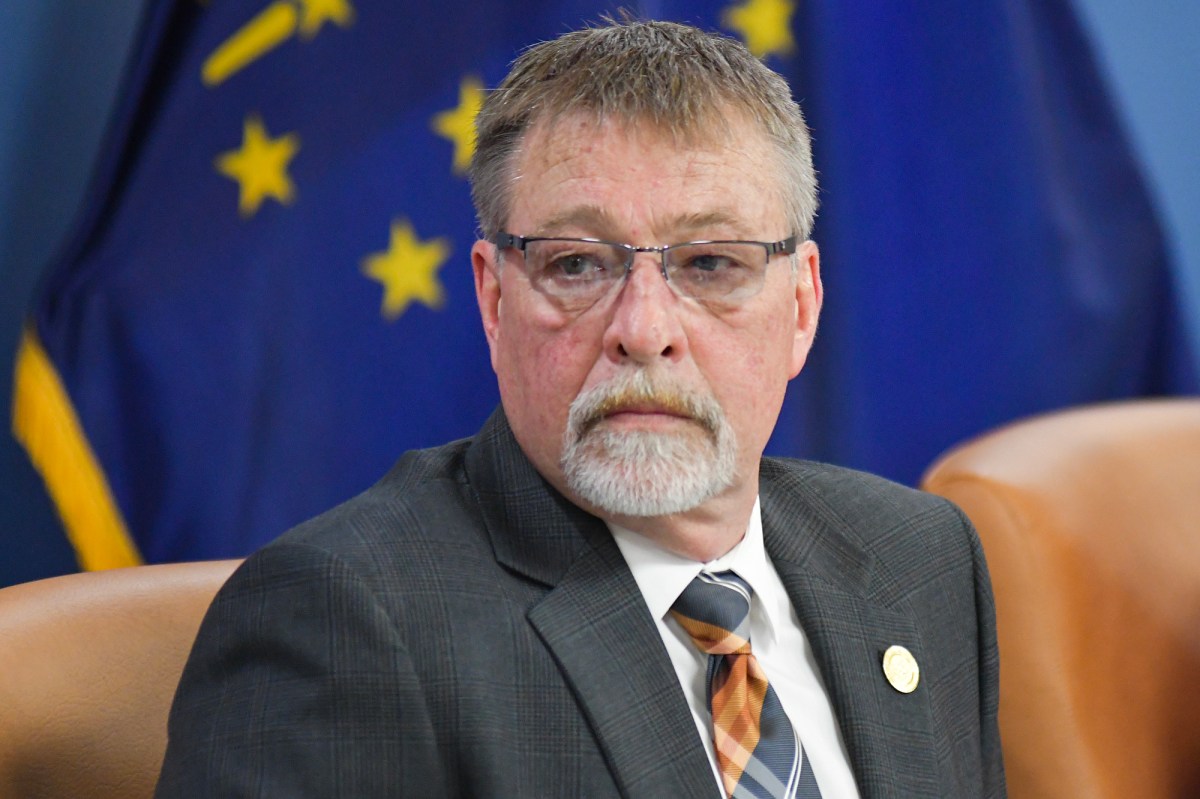House Republicans bring back language from a dead bill protecting some ‘forever chemicals’ from regulation
INDIANAPOLIS (MIRROR INDY) — Indiana House Republicans have resurrected language from a dead bill limiting which “forever chemicals” can be regulated by the state by grafting its provisions onto an unrelated bill.
House Bill 1329, authored by Rep. Jim Pressel, R-Rolling Prairie, regulates onsite sewage systems and addresses other local government matters, but Pressel added language from a dead bill that would change the state’s definition of what constitutes a PFAS chemical.
The dead bill, House Bill 1399, authored by Rep. Shane Lindauer, R-Jasper, sought to exclude thousands of PFAS chemicals known as polymers from the state’s definition, essentially exempting them from potential regulation in the future.
PFAS chemicals are used to make products resistant to heat, water, grease and stains, but the health effects of only a few have been thoroughly studied. Those that have been studied, like PFOA and PFOS, have been linked to increased risk of developing certain cancers and other health issues.
Lindauer’s bill had been passed by the House but died in the Senate Committee on Environmental Affairs after Sen. Rick Niemeyer, the committee chair, said he would not take action on it during a Feb. 26 hearing.
The Senate and the House passed differing versions of the onsite sewage bill, HB1329, but neither version included the PFAS language.
A conference committee was assembled this week to seek a compromise between the bill versions.
Pressel, who chairs the bill’s conference committee, added the entire text of the PFAS bill into HB1329 during a conference committee hearing on Wednesday, March 6. His addition widens the gap between the bill versions.
Mirror Indy reached out to Pressel, but he did not respond to requests for comment.
Lindauer, who authored the original PFAS bill, said it would remove regulatory uncertainty for burgeoning businesses that use the chemicals to make medical devices, microchips and lithium batteries and other products in Indiana. The chemicals have been detected in dozens of water systems across the state, including in Indianapolis.
Rep. Maureen Bauer, D-South Bend, part of the bill conference committee, said the addition goes against scientific facts and the will of most Hoosiers.
“Taking a step backward in regards to PFAS policy is not the direction Indiana wants to go,” Bauer said. “It would be my hope that instead of misinforming the public or trying to hide the use of these chemicals that we could shine a light on it and better expose how broad they are used in everyday products currently.”
Bauer said the new language could endanger final passage of HB1329.
“All four conferees have to sign off on any changes added to the bill,” Bauer said. “If there’s a section that could prevent maybe one conferee from signing, it could be removed. And that could be the PFAS definition change. I don’t think Rep. Pressel wants his original bill to be in jeopardy.”
In addition to all members of the conference committee, the bill also must be approved by the full House and Senate. If that happens, the bill would head to Gov. Eric Holcomb for final approval.
Mirror Indy reporter Enrique Saenz covers west Indianapolis. Contact him at 317-983-4203 or enrique.saenz@mirrorindy.org. Follow him on X @heyEnriqueSaenz
